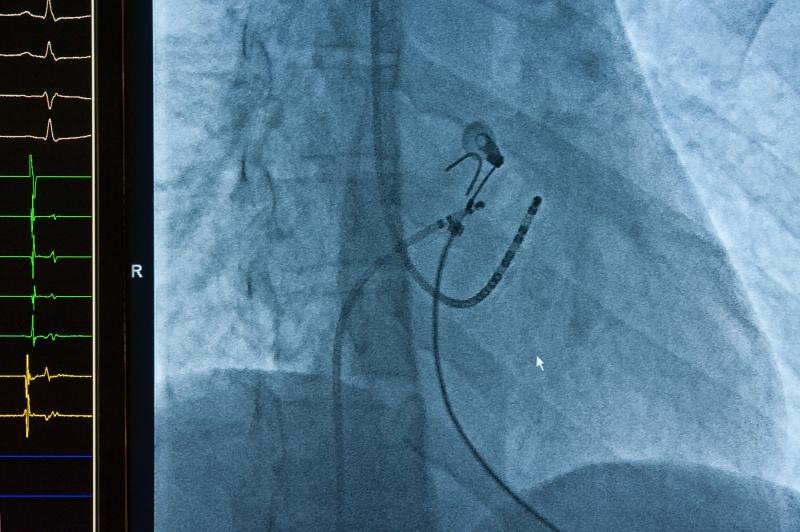
Nearly one in 200 patients in a nationally representative cohort succumbs to early mortality following atrial fibrillation (AF) ablation, with most deaths occurring during 30-day readmission, according to a recent study. Early mortality is associated with procedural complications, congestive heart failure (CHF) and low hospital AF ablation volume.
Early mortality following AF ablation occurred in 0.46 percent of patients. Of these deaths, 54.3 percent happened during readmission. Quarterly rates of early mortality after AF ablation increased from 0.25 percent to 1.35 percent (p<0.001) from 2010 to 2015, with a median time from ablation to death of 11.6 (interquartile range, 4.2–22.7) days.
Adjustment for age and comorbidities revealed the following predictors of early mortality: procedural complications (adjusted odds ratio [aOR], 4.06; p<0.001), CHF (aOR, 2.20; p=0.011) and low AF ablation hospital volume (aOR, 2.35; p=0.003). Complications due to cardiac perforation (aOR, 2.98; p=0.007), other cardiac (aOR, 12.8; p<0.001) and neurologic aetiologies (aOR, 8.72; p<0.001) also correlated with early mortality.
“Prompt management of postprocedure complications and CHF may be critical for reducing mortality rates following AF ablation,” the authors said.
This study evaluated 60,203 admission of patients aged ≥18 years for AF ablation between 2010 and 2015 using the all-payer, nationally representative Nationwide Readmissions Database. Early mortality was defined as death during initial admission or 30-day readmission.
The authors identified comorbidities, procedural complications and causes of readmission after AF ablation based on International Classification of Diseases–9th Revision, Clinical Modification codes. They performed multivariable logistic regression to assess the predictors of early mortality.